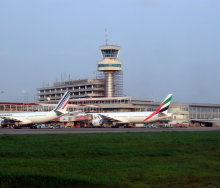Cybercrime looms as an ever-present threat in the hospitality industry and online fraudsters are increasingly sophisticated in the tactics they deploy to infiltrate businesses, according to FEDHASA National Chair, Rosemary Anderson.
Natasha Parry, GM of SATIB Insurance Brokers, told Travel News that it had noticed a general increase in the frequency and sophistication of malware attacks in the hospitality industry.
“The evolving nature of cyber threats emphasises the importance of proactive measures to mitigate risks. Hospitality establishments that neglect to protect or insure themselves against malware face severe consequences. These may include financial losses, damage to reputation, loss of customer trust, and potential legal ramifications. The impact of a malware attack extends beyond immediate financial concerns, affecting the long-term viability of the business,” said Parry.
Anderson noted that, while robust cybersecurity might seem expensive, affordable tools tailored for small businesses were readily available. “The hospitality industry relies inherently on trust. With proactive security and insurance, we can protect our guests' data and safeguard our hard-earned reputation. There are a host of solutions or service providers available to support businesses on their cybersecurity journey.”
How to protect against malware
Hospitality establishments can safeguard themselves by investing in comprehensive cybersecurity insurance policies specifically tailored to address malware threats.
“These policies should cover a range of potential damages, including data breaches, financial losses, and reputational damage,” said Parry.
Being insured against malware also provides a layer of financial protection in the event of an attack.
“This coverage can include the costs associated with recovering compromised data, legal expenses, and potential revenue losses. Additionally, having insurance can enhance a business's reputation, demonstrating a commitment to customer privacy and security,” Parry added.
Anderson and Parry provided the following ‘tips and tricks’ for hospitality establishments to protect against cybercrime:
- Regularly update and patch software to address vulnerabilities.
- Conduct regular cybersecurity audits.
- Implement robust antivirus and anti-malware solutions.
- Enforce best practices such as strong passwords and identifying suspicious emails or phishing scams.
- Educate employees on cybersecurity best practices and conduct regular training sessions.
- Utilise firewalls and encryption to secure sensitive data.
- Establish a comprehensive incident response plan to mitigate the impact of a potential attack.
“Cybersecurity is an ever-evolving challenge, and the hospitality industry must remain vigilant. Collaborative efforts, information sharing, and staying informed about emerging threats are crucial in maintaining a resilient defence against malware. SATIB remains committed to supporting the industry in navigating these challenges and promoting a secure digital environment,” Parry concluded.














